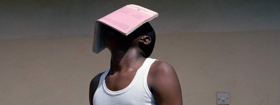Z MRTVEHO DOMU Comes to La Monnaie

After Kát'a Kabanová (2010), Jen?fa (2014) and recently Foxie! The Cunning Little Vixen, there is still more Leoš Janá?ek to come at La Monnaie. In November 2018 the opera house is presenting Z mrtvého domu (From the House of the Dead), the Czech composer's last and perhaps most powerful opera. It is based on Dostoyevsky's semi-autobiographical novel Memoirs from the House of the Dead (1862), an account of the Russian writer's own experiences as a political prisoner in a Siberian gulag. It is a mosaic of loosely-knit episodes about the inhumane conditions in a labour camp, punctuated with the stories and life histories of his fellow prisoners.
Janá?ek himself pared his libretto from the novel. He reduced the total number of characters from 70 to 20 - still a very large number for an opera of averagely one and a half hour -, shortened dialogues and synthesised episodes and details which in Dostoyevsky's version lie far apart, thereby giving some characters greater depth. However, there is nothing resembling a real plot, an overriding narrative; the piece is a loose montage of dramatic situations and musical meanings. Neither does it contain the traditional dividing line between main and secondary characters; the hell of a gulag is too 'egalitarian' for that. The Siberian prisoners form a solid collective chorus, from which an individual voice occasionally extricates itself.
The music of From the House of the Dead is an extreme example of the late style of the Moravian composer: loud, powerful, aggressively modernist in the harmonies, frenetic in the rhythms, but in essence lyrical in the thematic labour and in the melodies. As always, an important role is reserved for the percussion section, which even gets to wield real chains. In the midst of the turbulent music, brief moments of intangible beauty, sometimes no longer than a couple of notes, come in all the louder. At no time does Janá?ek tone down the cruelty and harshness of the story. And yet his opera comes across as a deeply human work full of compassion and, paradoxically enough, vitality.
The Polish director Krzysztof Warlikowski explores in a contemporary setting the enduring relevance of this opera about life under oppression. Celebrated for his psychological precision, the non-conformism of his dramaturgical readings and the aesthetics of his idiosyncratic visual language, he now returns with members of his permanent team to the house that has played a key role in his opera career (with productions of Médée, Macbeth, voted Best Opera Production 2009 by Opernwelt, Lulu and Don Giovanni). Michael Boder, a specialist of the 20th-century repertoire, conducts the La Monnaie Symphony Orchestra and male chorus through Janá?ek's harrowing score, in the 2017 critical edition by John Tyrrell and Charles Mackerras.
An opera whose main character is actually a collective, demands intense ensemble playing. Director and conductor can count on the experience and expressivity of a superb Slav-British cast who, with one or two exceptions, also performed in the première at the Royal Opera House Covent Garden, our London coproduction partner.
Several of the singers have already sung their role and even recorded it in the now classic production by Pierre Boulez and Patrice Chéreau. The British bass baritone Sir Willard White, at La Monnaie Vodnik in Rusalka and an imposing Commendatore in Warlikowski's Don Giovanni, does credit to the 'Sir' in front of his name as the aristocratic, political prisoner Alexandr Petrovi? Gorjan?ikov. The Slovak tenor Štefan Margita makes his debut at La Monnaie in the role of Luka Kuzmi?, which he has performed all over the world. It is also a La Monnaie debut for Ladislav Elgr, who is singing Skuratov, the role he previously sang under Sir Simon Rattle in Berlin. The British tenors Peter Hoare (La Monnaie debut) and Graham Clark (a guest of La Monnaie for The Makropulos Affair in 2000), the Slovak baritone Aleš Jenis (La Monnaie debut) and the German tenor Florian Hoffmann (La Monnaie debut) are singing Šapkin, Elderly Prisoner, Don Juan and Young Prisoner respectively.
Other highly-respected singers at La Monnaie, often for Slavic repertoire are: the British tenor Nicky Spence (Tall Prisoner/Nikita) who sang Steva Burya in Jen?fa and will also return later this season for The Tale of Tsar Saltan. The British-Ukrainian bass baritone Pavlo Hunka (Šiškov/Priest) was Dikoj in Katya Kabanova, Schigolch in Lulu and the lazy Tsar Didon in The Golden Cockerel. The Russian bass Alexander Vassiliev (Prison Governor) sang Farar in Foxie! and Rychtar in Jen?fa. He will return later this season for The Tale of Tsar Saltan, as will Spieltenor Alexander Kravets (?erevin), whom we still remember as the enigmatic Astrologer in The Golden Cockerel. The Austrian mezzo-soprano Natascha Petrinsky (Prostitute) played Varvara in Kát'a Kabanová and recently also the title role in the world creation of Pascal Dusapin's Penthesilea. We have already heard Ivan Ludlow's baritone (?ekunov) in Jen?fa; his fellow Brit John Graham-Hall (Kedril) was Tichon Kabanov in Kát'a Kabanová, Rechtor (Schoolmaster) in Foxie! and recently also the sadistic Carceriere (Jailer) in Il Prigioniero. The Canadian tenor Pascal Charbonneau sang Aljeja in Robert Carsen's production for l'Opéra national du Rhin and is now making his debut at La Monnaie. It is also a role debut for his British counterpart Jeffrey Lloyd-Roberts (Drunk Prisoner).
In many ways, a production of From the House of the Dead is an invitation to reflect upon the experience of imprisonment, the challenges and perspectives for our current prison system and the importance of art and culture in this context. La Monnaie organizes an evening of discussion around these very topics and multiple publications will highlight the cultural activitities of its social programme 'A bridge between two worlds' in four Belgian prisons.
Videos
